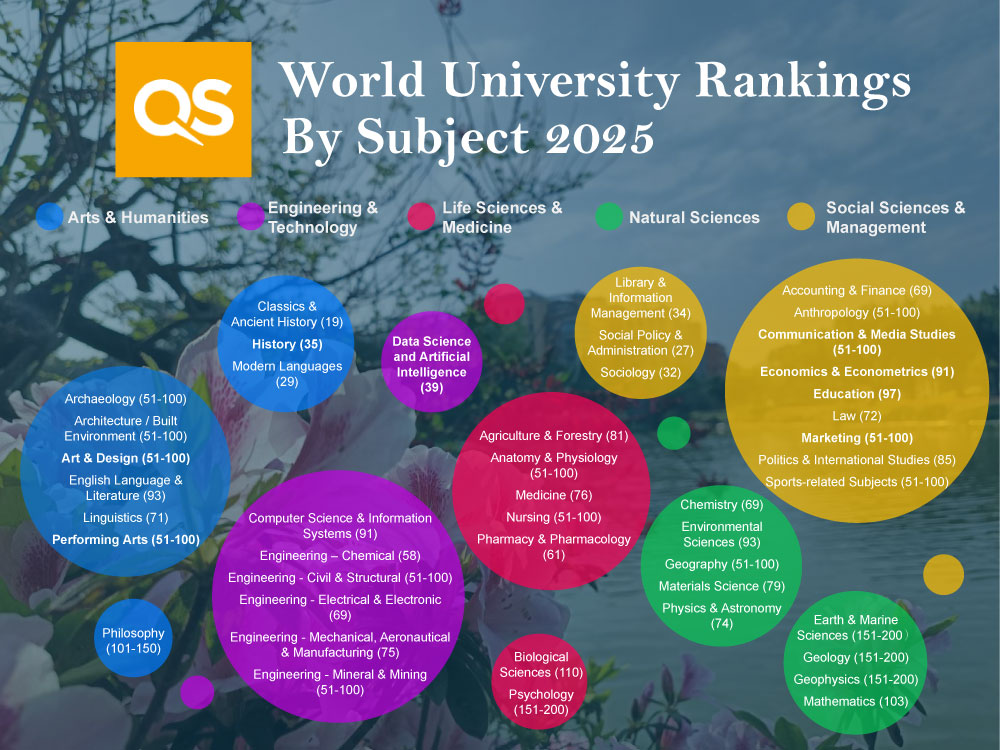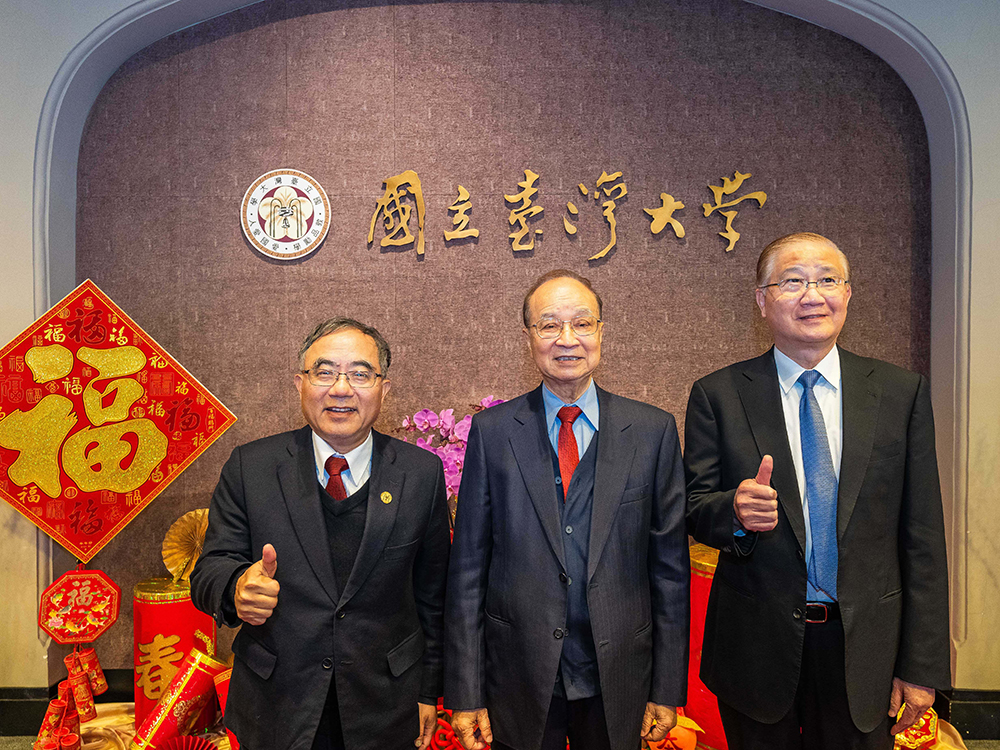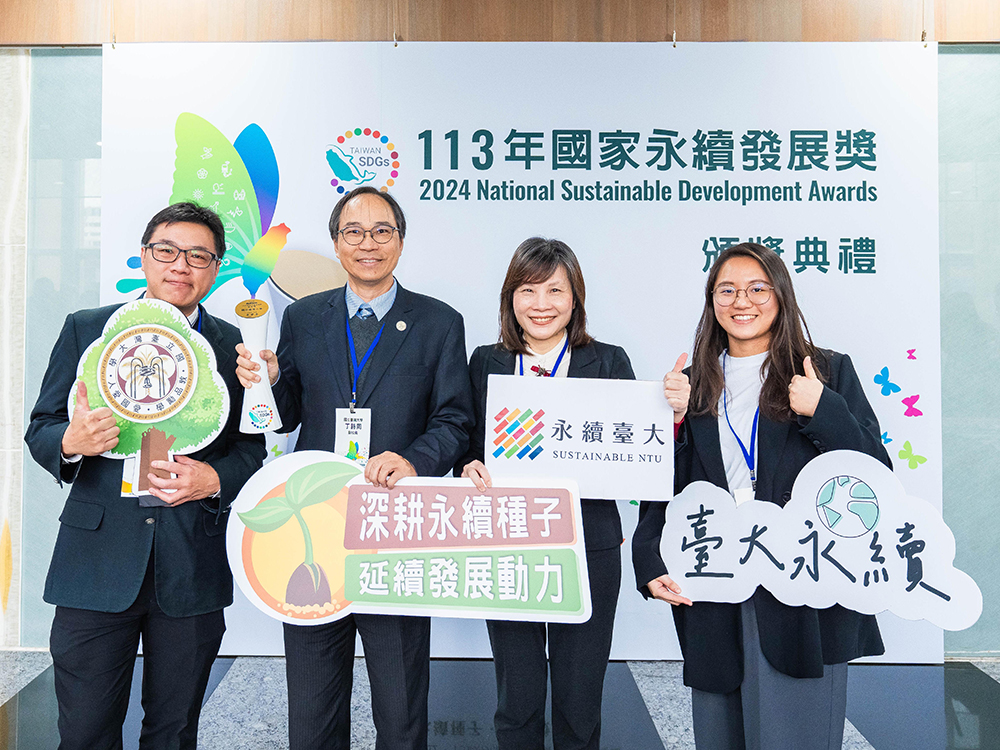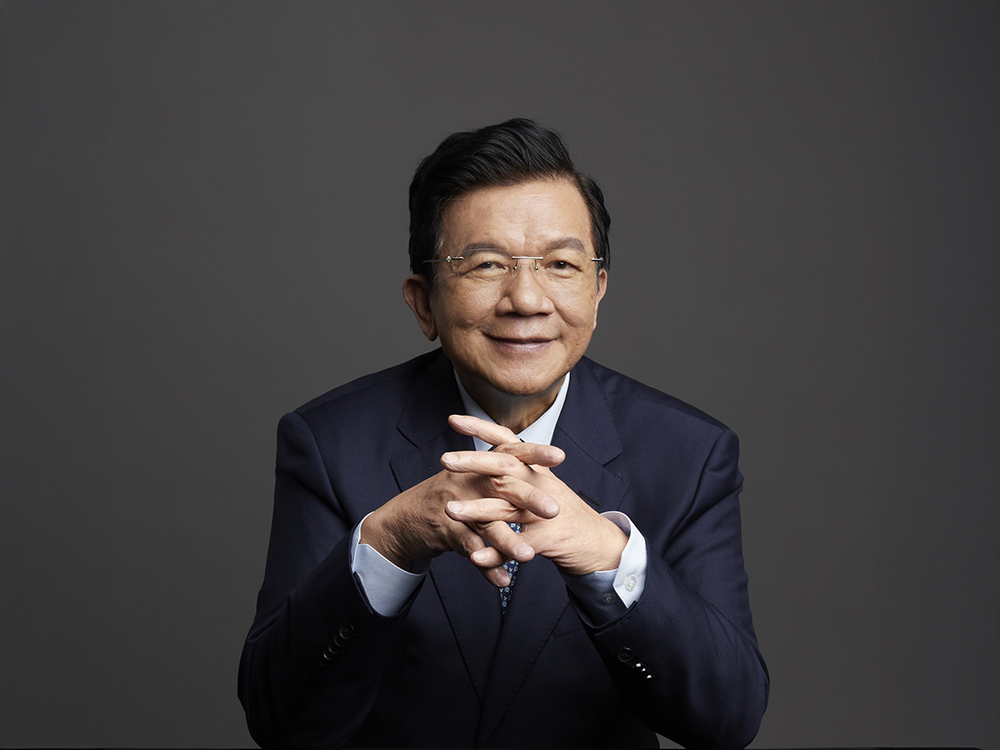
NTU ranks Top 50 in 7 subjects in 2025 QS Subject Rankings
瀏覽器版本過舊,或未開啟 javascript
請更新瀏覽器或啟用 javascript
Spotlights
The launch ceremony for the Startup Initiatives at NTU Zhubei Campus.
On December 13, 2024, National Taiwan University (NTU) held the grand launch ceremony for the new Innovation and Entrepreneurship Initiative at its Zhubei Campus in Hsinchu. This marked the official activation of the campus and its ambitious initiative focusing on "Pioneering Technological Research," "Innovative Start-ups," "Industry-Academia Collaboration," and “Campus Entrepreneurship Ecosystem." Over the next decade, NTU plans to invest more than NT$10 billion in infrastructure to establish the campus as a hub for local industries and global innovation, driving a new wave of campus startups. Distinguished attendees include Minister Chin-Ching Liu of the National Development Council, Hsinchu County Magistrate Wan-Ke Yang, and numerous local legislators.
According to National Taiwan University's (NTU) plans, the Zhubei Campus will advance its infrastructure in phases. In the initial phase, an investment of NT$1.8 billion is planned, which includes optimizing the existing Pei-Tsen Hall as the starting space and constructing the "Next-Generation Smart 3D National Land Information Center" and the "Conference and Living Service Facility" to support both research and daily operation. In the mid-term phase, NTU plans to build the "Advanced Joint R&D Building" and the "Technology Innovation and Research Building (NTU Tech)" to further enhance innovation and entrepreneurship research capabilities. In the long-term phase, the university aims to establish the "Smart Medical Building" and the "Semiconductor Quantum Center Building," focusing on advanced fields such as smart healthcare and semiconductor quantum technology, thus deepening and expanding industry-academia collaboration. The total hardware investment plan exceeds NT$10 billion, with short-term funding sourced from NTU itself, while mid-to-long-term funding will rely on donations or public construction projects.
Beyond infrastructure, NTU is also implementing various supporting measures, including launching new technology entrepreneurship programs (such as the Semiconductor Chip Entrepreneurship Program, Smart Healthcare Entrepreneurship Program, and short-term technology entrepreneurship credit courses), refining existing in-service master's degree programs, and promoting forward-looking technology-industry collaborations. Additionally, NTU plans to establish its own venture investment & consulting unit to drive an alumni venture capital fund, which has already secured commitments from private enterprises and the government, totaling NT$1 billion in investments.
The Zhubei Campus is characterized by its close connection with Hsinchu Science Park and Hsinchu Biomedical Park, with a focus on key fields such as semiconductor chips, quantum technology, AI, smart healthcare, and sustainable carbon reduction. NTU aims to strengthen entrepreneurship programs and talent cultivation while building a comprehensive smart living environment and innovation ecosystem. The university will use the Industrial Innovation Center as a platform to enhance the entrepreneurial ecosystem and leverage its venture investment & consulting firm to provide startups with funding and dedicated VC mentorship, ultimately fostering the commercialization of NTU’s research outcomes.
NTU President Wen-Chang Chen stated that the university’s goal in fostering new innovation and entrepreneurship is to transform academic research achievements into real-world applications and entrepreneurial engines, creating a startup runway with a brand-new entrepreneurial ecosystem. The Zhubei Campus offers four major advantages: (1) Connecting academic and research institutions to drive cutting-edge research and high-tech talent cultivation; (2) Integrating regional industry-academic resources for joint research and collaboration; (3) Leveraging government support to build a core technology industry hub; and (4) Promoting entrepreneurship programs, incubators, and accelerators to comprehensively develop the campus entrepreneurial ecosystem.
President Chen further emphasized NTU’s dual approach to perfecting the campus entrepreneurial ecosystem. On campus, NTU has established the Industrial Innovation Center to integrate the university’s innovation incubation center, entrepreneurship center, and startup resources. This initiative enhances existing entrepreneurship courses and establishes new technology entrepreneurship and post-degree entrepreneurship programs, providing startups with comprehensive support, including intellectual property and technology transfer management, industry-academia collaboration, legal and financial consulting, and administrative guidance. Additionally, NTU has partnered with private enterprises and the government to invest in early-stage deep-tech startups based on NTU’s research achievements. This initiative provides startups with mentorship from VC experts, connects them with NTU’s entrepreneurial resources, and drives deep-tech development, creating a new model for campus entrepreneurship.
Using climate change as an example, President Chen highlighted the profound impact of global environmental challenges on sustainable development. Recognizing this, NTU established the "Science and Technology Research Institute for DE-Carbonization" two years ago, focusing on geothermal energy and geological carbon sequestration technologies, as well as analyzing geological information of relevant sites. Recently, NTU has promoted the construction of the "Next-Generation Smart 3D National Land Information Center" in Zhubei, integrating multiple resources and technologies to digitally analyze and interpret 3D land information using artificial intelligence. This initiative will provide critical support for Taiwan's net-zero emissions goals and accelerate the transition to a sustainable future. Furthermore, the innovative technologies and solutions developed by NTU’s faculty and students will help address industry challenges, becoming valuable intellectual property assets.
In conclusion, President Chen emphasized Hsinchu’s unique position as a hub of technology and human ingenuity. He expressed his desire to unite resources and turn the Zhubei Campus into a foundation for collaboration with various sectors to establish the Zhubei Campus as a competitive center for innovation, entrepreneurship, and cutting-edge research, contributing to Taiwan’s industrial advancement and high-level talent cultivation.

NTU ranks Top 50 in 7 subjects in 2025 QS Subject Rankings

New articles by NTU Hospital uncover the tie between metabolic abnormalities and the risk of mortality and cancer

Embracing the Year of Snake: Lunar New Year Gathering

NTU wins the 2024 “National Sustainable Development Awards” for exerting influence in higher education

Prof. Chih-Kung Lee of NTU’s Institute of Applied Mechanics elected NAI Fellow
Current Spotlights